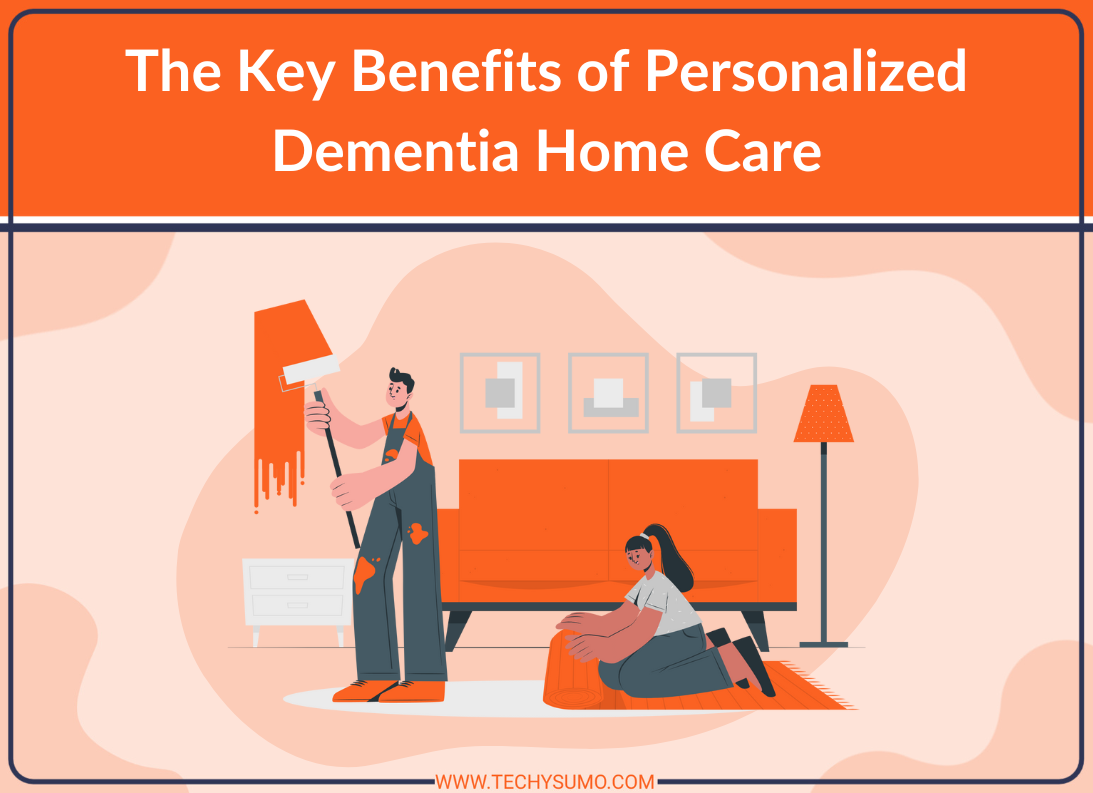When a loved one is diagnosed with dementia, finding the right care solution is crucial. Many families face the difficult decision of choosing between professional care facilities or arranging for care in the comfort of their own homes. This decision involves balancing cost, convenience, and emotional well-being, making it crucial to consider all options carefully.
For those who wish to maintain familiarity and comfort for their loved ones, dementia home care offers a beneficial solution. It can provide more than just daily assistance. Besides, it ensures that the emotional and physical well-being of the individual is prioritized in an environment they are familiar with.
Table of Contents
Maintain Comfort and Familiarity
One of the most significant advantages of personalized dementia care is that it allows the patient to remain in a familiar environment. Familiar surroundings have been shown to reduce confusion and anxiety, which is especially important for individuals living with dementia. The home, filled with cherished belongings, photographs, and memories, can provide a sense of security that is not achievable in unfamiliar settings like nursing homes or hospitals.
Additionally, staying at home allows individuals to continue their daily routines as much as possible. This consistency can be extremely beneficial in managing dementia symptoms, as a predictable routine can help reduce stress and prevent disorientation. Familiar activities such as morning walks, mealtimes, or engaging in hobbies can provide a sense of normalcy and comfort. A sense of stability is vital for someone with dementia, and home care provides just that.
Personalized Attention and Care Plans
This home care offers highly personalized services tailored to the individual’s unique needs and preferences. Unlike general care facilities, where a one-size-fits-all approach is often used, home care ensures that the care plan evolves with the person’s condition. Caregivers can focus solely on the person’s specific requirements, adjusting care as needed to provide the most effective support.
Also Read
By working closely with family members, caregivers can develop a customized plan that reflects the individual’s daily habits, preferences, and medical needs. This personalized approach is particularly important as dementia can cause patients to have changing needs over time. Whether it’s medication reminders, meal preparation, or mobility assistance, personalized care makes a huge difference in maintaining the person’s quality of life.
Improved Communication and Relationships
In a home care setting, caregivers have the opportunity to establish a stronger bond with the individual. This relationship, built on trust and familiarity, often leads to better communication, which can significantly improve the care process. Family members can also be more involved in the day-to-day care of their loved ones, leading to a stronger sense of connection and a better understanding of the individual’s needs.
Effective communication is critical for someone with dementia. Personalized home care ensures that caregivers can tailor their communication style to match the individual’s needs, creating an atmosphere that fosters cooperation and reduces frustration. Whether through gentle prompts or the use of nonverbal cues, caregivers can adapt their approach to help the person feel understood and respected.
Safety and Security at Home
Safety is always a top priority when caring for someone with dementia. Home care allows for a customized safety plan, taking into account the person’s specific needs and the layout of the home. Modifications can be made to reduce fall risks, improve mobility, and ensure the home remains a safe environment. Additionally, caregivers can monitor the individual closely, ensuring they are not left alone during potentially hazardous situations, such as bathing or cooking.
A personalized home care plan can include measures such as installing grab bars in bathrooms, clearing walkways of hazards, or setting up a monitoring system to ensure that the person is safe even when the caregiver isn’t directly in the same room. These adjustments can help prevent accidents and ensure that the individual feels secure in their own homes, where they are most comfortable.
Preserving Independence and Dignity
A major concern for individuals with dementia is the loss of independence. Being able to make decisions, complete daily activities, and maintain some level of autonomy is essential to preserving their sense of dignity. Personalized home care helps to foster this by providing just the right amount of support, enabling individuals to maintain control over their daily lives as much as possible.
Rather than having someone constantly do everything for them, a caregiver can assist with tasks while allowing the individual to participate as much as they can. Whether it’s preparing meals, dressing, or engaging in hobbies, home care allows individuals to retain their independence while receiving the help they need. This balance helps to maintain a sense of self-worth and pride for those with dementia.
Emotional and Psychological Support
Dementia can be isolating for individuals, and it can also take a toll on the emotional well-being of family members. Personalized home care offers emotional support that is crucial for both the person with dementia and their family. Caregivers are trained not only to assist with physical tasks but also to provide emotional comfort, helping individuals cope with the challenges of dementia.
Having a dedicated caregiver who understands the emotional needs of someone with dementia can ease feelings of loneliness and depression. Additionally, the presence of a caregiver allows family members to have peace of mind, knowing that their loved one is in good hands. This support system is invaluable for reducing the emotional stress that often comes with caregiving.
Reduced Caregiver Burnout
Caring for someone with dementia can be exhausting, both physically and emotionally. Family caregivers often face the challenge of balancing their responsibilities at home, work, and personal life while providing the care their loved ones need. By opting for personalized home care, families can alleviate some of the pressure on themselves.
Having professional caregivers handle certain aspects of care can allow family members to focus on their own well-being, reducing the risk of caregiver burnout. Respite care options allow family caregivers to take breaks and recharge, knowing their loved one is still receiving the care and attention they deserve. This support can make a significant difference in maintaining the health and well-being of the entire family.
Personalized dementia home care offers numerous benefits for both the individual with dementia and their family. It allows for a familiar environment that promotes comfort, safety, and emotional well-being. With a customized care plan tailored to the unique needs of the individual, families can ensure that their loved one receives the best possible support.






